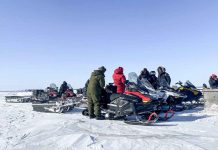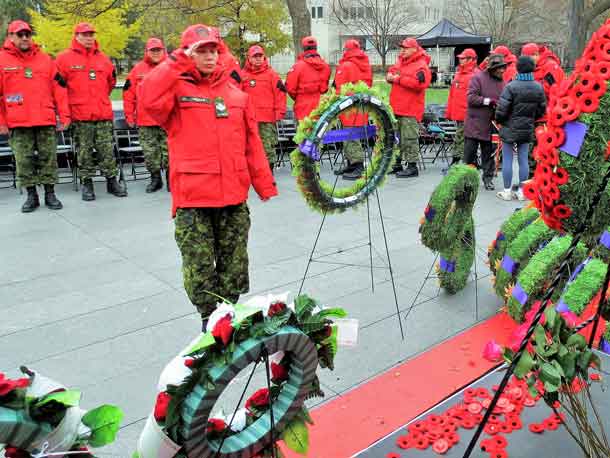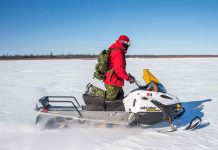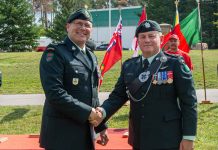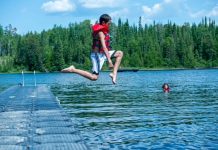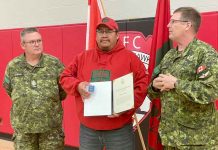
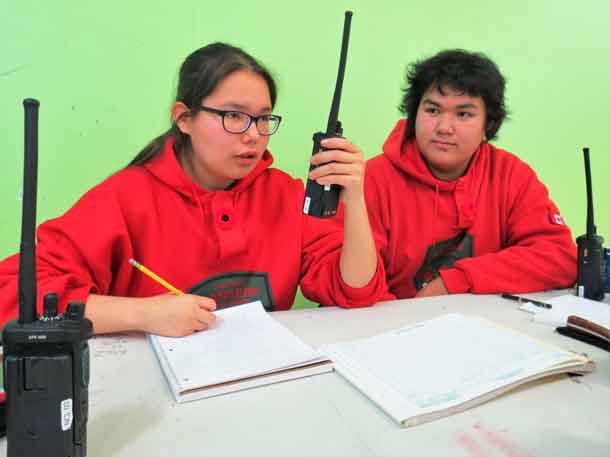
By Peter Moon
THUNDER BAY – Canadian Rangers from 17 First Nation communities from across the Far North of Ontario have completed a week-long training exercise to hone their search and rescue skills.
Almost 100 Rangers, who are part-time army reservists, participated in Exercise Ranger Tracker, which provided refresher training and realistic search scenarios based on the kind of search situations that occur regularly in the Northern wilderness.
There are 650 Rangers in 24 First Nations in Ontario.
“This year’s Ranger Tracker was a success,” said Lieutenant-Colonel Matthew Richardson, the commanding officer of the 3rd Canadian Ranger Patrol Group. “It’s an exercise we do every year just before the winter season and the skills the Rangers learn from it save lives. Last year, for example, we completed 25 searches in which we saved 32 lives. The training makes their communities safer places to live in.
“This winter the Rangers will be there to save people’s lives if it becomes necessary.”
The training took place in the remote communities of Nibinamik, Wapekeka, and Webequie. Apart from Rangers from the three settlements, who know their territories intimately, it was unknown land to Rangers who flew to them from their home communities. The Rangers who flew in had to learn how to use maps, compasses, and GPS, to be able to operate on land they were unfamiliar with.
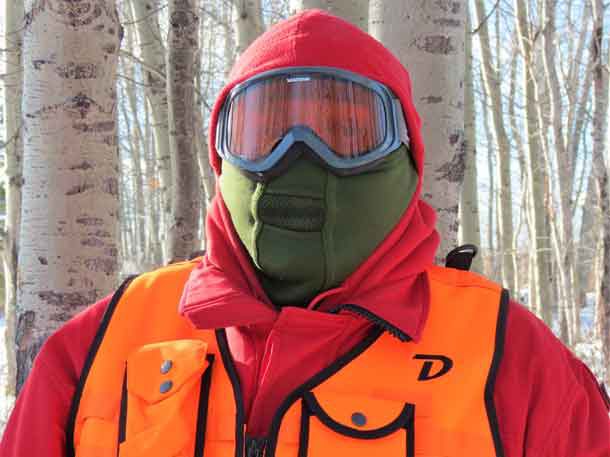
“The training involved navigation basics,” said Captain Mark Rittwage, the Canadian Army officer in charge of the exercise, “and then the Rangers had to go out and use the search techniques they were taught on the ground. The culmination of the training was major searches with challenging search scenarios. “
The challenges included finding overdue hunters, missing teenagers, and responding to reports that someone had gone through the ice on a lake.
For members of the new Ranger patrol in Nibinamik and new members of the enlarged detachment in Wapekeka, the training was their introduction to the Ranger program.
“They had a lot of questions,” said Sergeant Jean Rabbit-Waboose, an experienced Ranger from Eabametoong First Nation. “They are familiar with their land and the training taught them how to operate in unfamiliar territory. I enjoyed being a mentor for them.
“The army’s training and funding for us has been a blessing for all our communities. It has saved a lot of lives.
“Climate change is becoming a challenge. A lot of elders say the trails we’ve used for years are no longer safe to use and we have to learn different routes. We have to listen to our elders. This training helps us.”
Warrant Officer Daniel Stortz, the army instructor who conducted the training in Wapekeka, was impressed by the new local Rangers. “They jumped right in. There was no hesitation on their part to get involved. You can always train people who want to learn. They are going to be good Rangers.”
Rangers from the seven Cree communities on the James Bay and Hudson Bay coast normally take part in the annual exercise. But they were excused this year because many of them are assisting the Cree community of Wasaganish on the Quebec side of James Bay, where four local hunters went missing in their boat on October 17. Two bodies have been recovered. The Ontario Rangers are using their Ranger skills as unpaid civilian volunteers in the search.
(Sergeant Peter Moon is the public affairs ranger for the 3rd Canadian Ranger Patrol Group at Canadian Forces Base Borden.)

